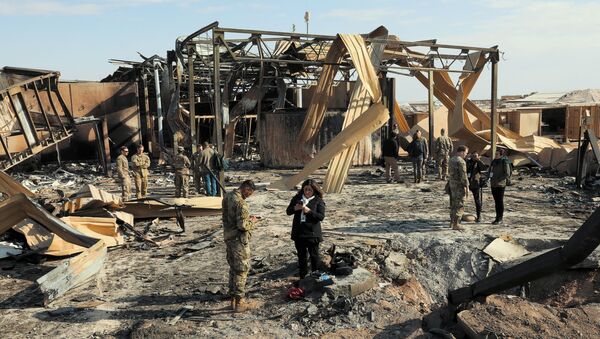"As of today, 50 US service members have been diagnosed with TBI," Pentagon spokesman Lt. Col. Thomas Campbell said, according to CNN.
This report is a 16-service member increase from last week's count of 34 injured personnel given by department spokesman Jonathan Hoffman. Of the 16 newly identified cases, only one service member has been removed from Iraq.
"Of these 50, 31 total service members were treated in Iraq and returned to duty, including 15 of the additional service members who have been diagnosed since the previous report. 18 service members have been transported to Germany for further evaluation and treatment," Campbell added.
Last week, US President Donald Trump made light of the various levels of brain injury endured by the service members.
“I heard that they had headaches and a couple of other things, but I would say and I can report it is not very serious,” he told reporters while in Davos, Switzerland, for the World Economic Forum, as reported by The Guardian. “I don’t consider them very serious injuries relative to other injuries I have seen. I’ve seen people with no legs and no arms.”
The US president has since received backlash from Veterans of Foreign Wars, which called for Trump to extend an apology to US service members "for his misguided remarks."
"TBI is a serious injury & one that cannot be taken lightly. TBI is known to cause depression, memory loss, severe headaches, dizziness & fatigue — all injuries that come w/ both short- and long-term effects." - VFW National Commander William "Doc" Schmitz https://t.co/bfckobGE7m pic.twitter.com/gjSsonQfLz
— VFW National HQ (@VFWHQ) January 24, 2020
On January 8, the IRGC carried out Operation Martyr Soleimani and struck Ayn al-Asad airbase in Western Iraq and another facility in the Iraqi city of Erbil in retaliation for the killing of of top Iranian general Qasem Soleimani. Though no injuries to US personnel were initially reported in connection to the strike, the Pentagon's Tuesday announcement is the third update on injuries sustained by American troops.
Pentagon sources told CNN that additional diagnoses may be reported in the coming days, as approximately 200 troops were in the blast zones of the strikes.


